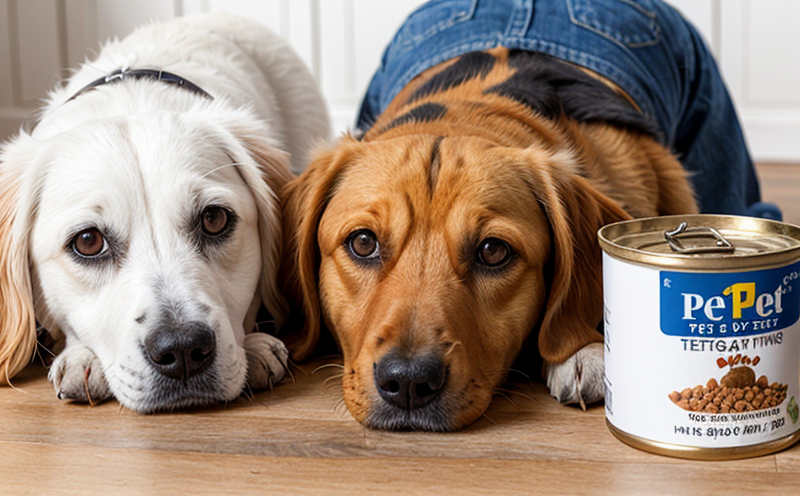ISO 117008 Enterobacteriaceae Profiling in Pet Food
The ISO 117008 standard provides a framework for profiling Enterobacteriaceae in pet food products. This test is crucial for ensuring the safety and quality of pet foods, as it helps identify potential pathogens that could pose risks to pets’ health. The process involves several key steps including sample collection, preparation, inoculation on selective media, incubation, isolation, identification using biochemical or molecular techniques, and finally reporting results.
The testing procedure follows a strict protocol outlined in ISO 117008 which ensures consistency and reliability of the results across different laboratories. This includes detailed instructions for sample collection that must be sterile to prevent contamination from external sources. Proper handling is critical as even minor deviations can lead to inaccurate results. Once collected, samples are processed according to specified methods ensuring accurate representation of the microbiological content.
After initial isolation and cultivation on appropriate media, identification of Enterobacteriaceae species is carried out using advanced diagnostic tools like MALDI-TOF MS (Matrix-Assisted Laser Desorption Ionization-Time of Flight Mass Spectrometry), PCR-based methods or other standardized approaches. These techniques allow for precise differentiation between various members within this family of bacteria.
The final step involves generating a comprehensive report detailing the presence and concentration levels of different Enterobacteriaceae species identified during analysis. This information is valuable not only from regulatory compliance perspectives but also helps manufacturers understand their product’s microbiological profile better, enabling them to make informed decisions regarding formulation changes or process improvements aimed at enhancing safety.
Compliance with ISO 117008 ensures that pet food products meet stringent hygiene standards set forth by international regulations. By adhering strictly to these guidelines, companies can demonstrate their commitment to producing safe and wholesome meals for our furry companions while avoiding costly recalls or litigation due to contamination incidents.
- Ensures adherence to global best practices in microbiological analysis
- Aids in maintaining consistent quality across batches of pet food
- Helps identify potential sources of contamination early on, allowing for swift corrective actions
- Provides data that can be used for ongoing product development and improvement projects aimed at increasing safety margins
In conclusion, ISO 117008 Enterobacteriaceae Profiling in Pet Food plays an essential role in safeguarding public health by minimizing risks associated with bacterial contamination. It supports manufacturers in achieving regulatory compliance while offering insights into product performance that drive continuous improvement efforts.
Benefits
The ISO 117008 Enterobacteriaceae Profiling service offers numerous advantages to pet food manufacturers and quality assurance teams. Firstly, it ensures full compliance with international standards, thereby safeguarding the reputation of your brand on both national and global markets.
- Enhances consumer confidence by providing assurance about product safety
- Aids in maintaining consistent quality across all production batches through rigorous testing procedures
- Facilitates early detection of potential contamination issues allowing for timely corrective measures
- Supports ongoing research and development initiatives focused on enhancing overall product safety and nutritional value
Furthermore, this service helps streamline regulatory submissions by offering clear evidence supporting claims made in labeling statements regarding the microbiological quality of pet foods.
Why Choose This Test
Choosing ISO 117008 Enterobacteriaceae Profiling for your pet food products is a strategic decision that aligns with industry best practices and regulatory requirements. Here are some compelling reasons why opting for this service makes sense:
- Global Recognition: Adhering to ISO standards ensures international acceptance, opening up export opportunities and strengthening market presence.
- Informed Decision-Making: The detailed reports generated provide valuable insights into the microbiological profile of your products, guiding improvements in formulation or production processes.
- Cost Efficiency: Early detection of contamination prevents costly recalls and damages to brand reputation.
- Customer Satisfaction: Meeting strict hygiene standards enhances customer trust and loyalty, fostering long-term relationships with consumers.
Beyond mere compliance, this service delivers tangible benefits that contribute directly to the success of your business in today’s competitive pet food market.





